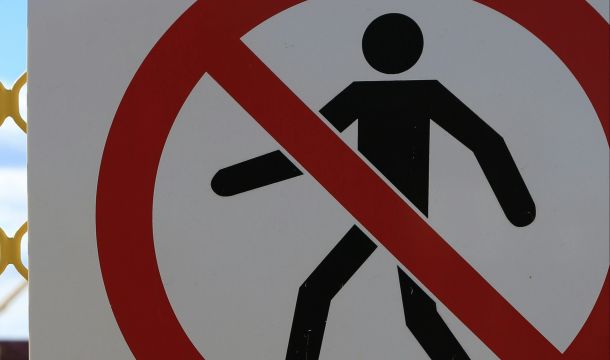NLRB SETS EASIER STANDARDS FOR EMPLOYER RULES
During the Obama Administration particularly, the National Labor Relations Board (NLRB) had become very restrictive of employer work rules that might be interpreted by someone to "chill" legitimate union or concerted protected activities. For example, a rule prohibiting "walking off the job" might be interpreted by some to prohibit engaging in a work stoppage, which is a protected concerted activity. The current NLRB majority and its new General Counsel, Peter Robb, have moved towards new more lenient standards. On June 6, 2018, Robb issued a memorandum to all NLRB field offices instructing those offices "that ambiguities in rules are no longer interpreted against the drafter." He went on to say that generalized employment policies and provisions "should not be interpreted as banning all" conceivable worker activity protected by law.
The NLRB in December 2017 established a new standard in The Boeing Company, 365 NLRB No. 154, which instead focused on the balance between a rule’s negative impact on employees’ ability to exercise their Section 7 rights and the rule’s connection to an employers' right to maintain discipline and productivity in the workplace. Robb sets forth that the Boeing decision criticized an Obama-era case and its progeny for prohibiting any rule that could be interpreted as covering Section 7 activity, as opposed to only prohibiting rules that would be so interpreted. The Memo provides examples of rules the NLRB will presume lawful. That includes general civility rules banning offensive language and rude or socially unacceptable behavior, as well as "no-photography" rules and insubordination restrictions that do not impede on workers’ rights to engage in concerted activity. Robb does note in the Memo that a total ban on cell phones in the workplace may not pass muster under the Labor Act.
Category 1: Rules that are Generally Lawful to Maintain
A. Civility Rules
- "Conduct . . . that is inappropriate or detrimental to patient care of [sic] Hospital operation or that impedes harmonious interactions will not be tolerated.
- Behavior that is rude, condescending or otherwise socially unacceptable is prohibited.
- Employees may not make negative or disparaging comments about the . . . professional capabilities of an employee or physician to employees, physicians, patients, or visitors.
- Disparaging . . . the company’s . . . employees is prohibited.
- Rude, discourteous or unbusinesslike behavior is forbidden.
- Disparaging or offensive language is prohibited.
- Employees may not post any statements, photographs, video or audio that reasonably could be viewed as disparaging to employees."
B. No-Photography Rules and No-Recording Rules
- "[U]se of [camera-enabled devices] to capture images or video is prohibited.
- Employees may not record conversations, phone calls, images or company meetings with any recording device without prior approval.
- Employees may not record telephone or other conversation they have with their coworker, managers or third parties unless such recordings are approved in advance."
Note that, although the Board in Boeing addressed rules prohibiting the use of camera-enabled cell phones to take photographs, it did not address the use or possession of cell phones for communication purposes. The Division of Advice has concluded that a ban on mere possession of cell phones at work may be unlawful where the employees’ main method of communication during the work day is by cell phone.
C. Rules Against Insubordination, Non-Cooperation, or On-the-Job Conduct that Adversely Affects Operations
- "Being uncooperative with supervisors . . . or otherwise engaging in conduct that does not support the [Employer’s] goals and objectives is prohibited.
- Insubordination to a manager or lack of . . . cooperation with fellow employees or guests is prohibited."
D. Disruptive Behavior Rules
- "Boisterous and other disruptive conduct.
- Creating a disturbance on company premises or creating discord with clients or fellow employees.
- Disorderly conduct on Hospital premises and/or during working hours for any reason is strictly prohibited."
E. Rules Protecting Confidential, Proprietary and Customer Information on Documents
- "[I]nformation concerning customers . . . shall not be disclosed, directly or indirectly or used in any way.
- Do not disclose confidential financial data, or other non-public proprietary company information. Do not share confidential information regarding business partners, vendor or customers.
- Divulging Hotel-private information to employees or other individuals.
- No unauthorized disclosure of business secrets or other confidential information."
F. Rules Against Defamation or Misrepresentation
- "[M]ispresenting the company’s products or services or its employees is prohibited.
- Do not email messages that are defamatory."
G. Rules Against Using Employer Logos or Intellectual Property
- "Employees are forbidden from using the company’s logos for any reason.
- Do not use company logo, trademark, or graphic [without] prior written approval."
H. Rules Requiring Authorization to Speak for Company
- "The company will respond to media requests for the company’s position only through the designated spokespersons.
- Employees are not authorized to comment for the employer."
I. Rules Banning Disloyalty, Nepotism or Self-Enrichment
- "Employees may not engage in conduct that is disloyal . . . competitive, or damaging to the company such as illegal acts in restraint of trade or employment with another employer.
- Employees are banned from activities or investments . . . that compete with the company, interferes with one’s judgment concerning the company’s best interests, or exploits one’s position with the company for personal gain."
Category 2: Rules Warranting Individual Scrutiny
Some possible examples of Category 2 rules are:
- "Broad conflict-of-interest rules that do not specifically target fraud and self-enrichment and do not restrict membership in, or voting for, a union.
- Confidentiality rules broadly encompassing employer business or employee information (as opposed to confidentiality rules regarding customer or proprietary information).
- Rules regarding disparagement or criticism of the employer (as opposed to civility rules regarding disparagement of employees).
- Rules regulating use of employer’s name (as opposed to rules regulating use of employer’s logo/trademark.
- Rules generally restricting speaking to the media or third parties (as opposed to rules restricting speaking to the media on the employer’s behalf).
- Rules banning off-duty conduct that might harm the employer (as opposed to rules banning insubordinate or disruptive conduct at work, or rules specifically banning participation in outside organizations.
- Rules against making false or inaccurate statements (as opposed to rules against making defamatory statements)."
Category 3: Rules that are Unlawful to Maintain
A. Confidentiality Rules Specifically Regarding Wages, Benefits or Working Conditions
B. Rules Against Joining Outside Organizations or Voting on Matters Concerning the Employer
Related Content
Get Email Updates
Recent Content

TPS Update (as of 9/3/2025)

DOL To Shut Down OFCCP and Transfer Duties to EEOC

Meaning of Supreme Court Ruling Limiting Nationwide Injunctions in Birthright Case

In Spite of Adminstration Changes, Monitoring of the Workplace Continues to Create Legal Issues

The Importance of Corporate Culture
